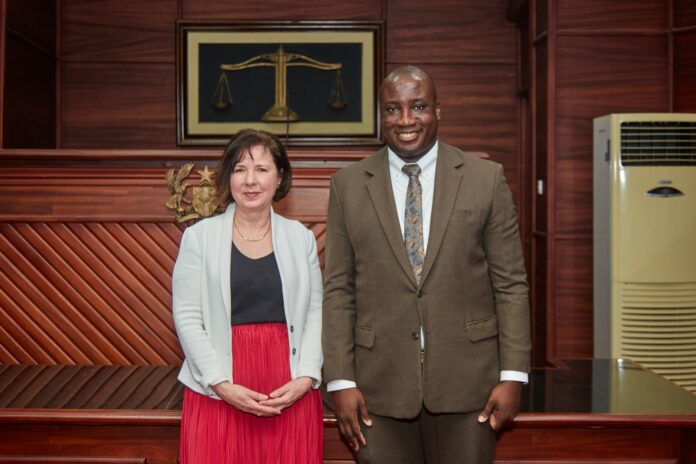The maiden Ghana Institute of Management and Public Administration (GIMPA) Law School Dean’s Lecture Series has been held with a call on stakeholders to contribute to the development of legal practice and education in Ghana and beyond.
Dean of the Faculty of Law at GIMPA, Kwaku Agyeman-Budu who made the call also stressed the need for the academia to “remain informed, engaged, and intellectually curious about contemporary global approaches to strengthen the law and its institutions”.
“It is in this context that the GIMPA Law School Dean’s Lecture Series has been instituted. This series serves as an annual platform for critical conversations on cross-jurisdictional perspectives, bringing together highly renowned jurists, legal experts, scholars, and practitioners to share their insights and engage in critical dialogue on contemporary legal issues”, Budu, who initiated the event indicated.
Distinguished Speaker
The lecture series was on the topic: “The Constitutional Court of Germany and the Basic Law”.
A Justice of the Federal and Constitutional of Germany Dr Sibylle Kessal-Wulf was the guest speaker at the event held at the Dr Daniel Mckoley Moot Courtroom at GIMPA in Accra on Friday (31 March).
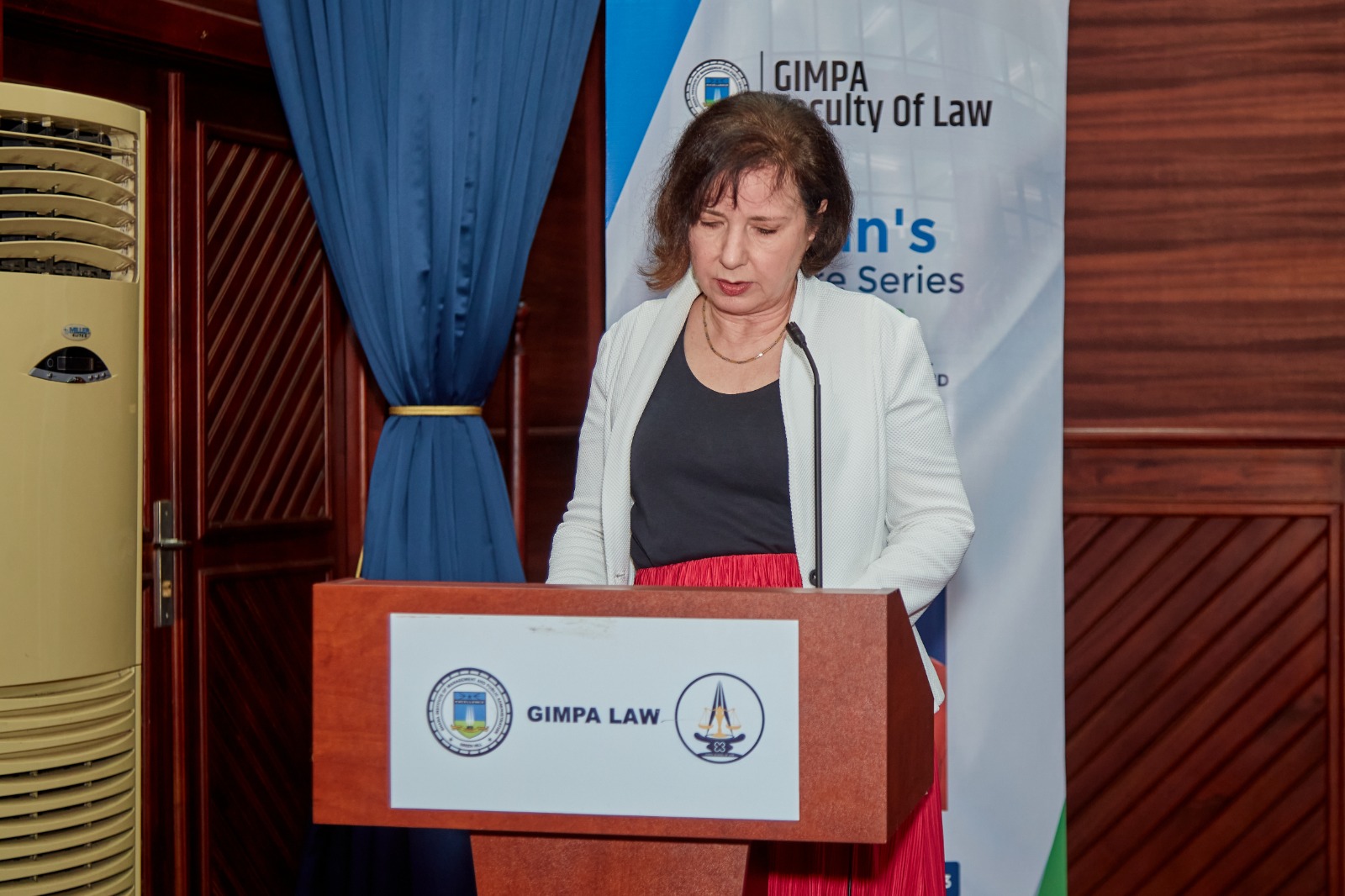
Constitutional Law of Germany
She noted that the Constitutional Court of Germany “consists of two Senates, each of them with eight Justices. Currently, the President presides over the First Senate, the Vice-President over the Second Senate”
“Both Senates form Chambers with three members each. Each of the 16 Justices is assisted by four judicial clerks who have gained relevant professional experience at ordinary courts, public authorities, law firms or universities.
“Each Senate has its own, precisely defined competencies, but officially, the decisions of each Senate are always decisions of the Federal Constitutional Court. Which of the two Senates is competent to decide follows from the Federal Constitutional Court Act and a Plenary order – a decision taken jointly by all 16 Justices” Justice Kessal-Wulf said.
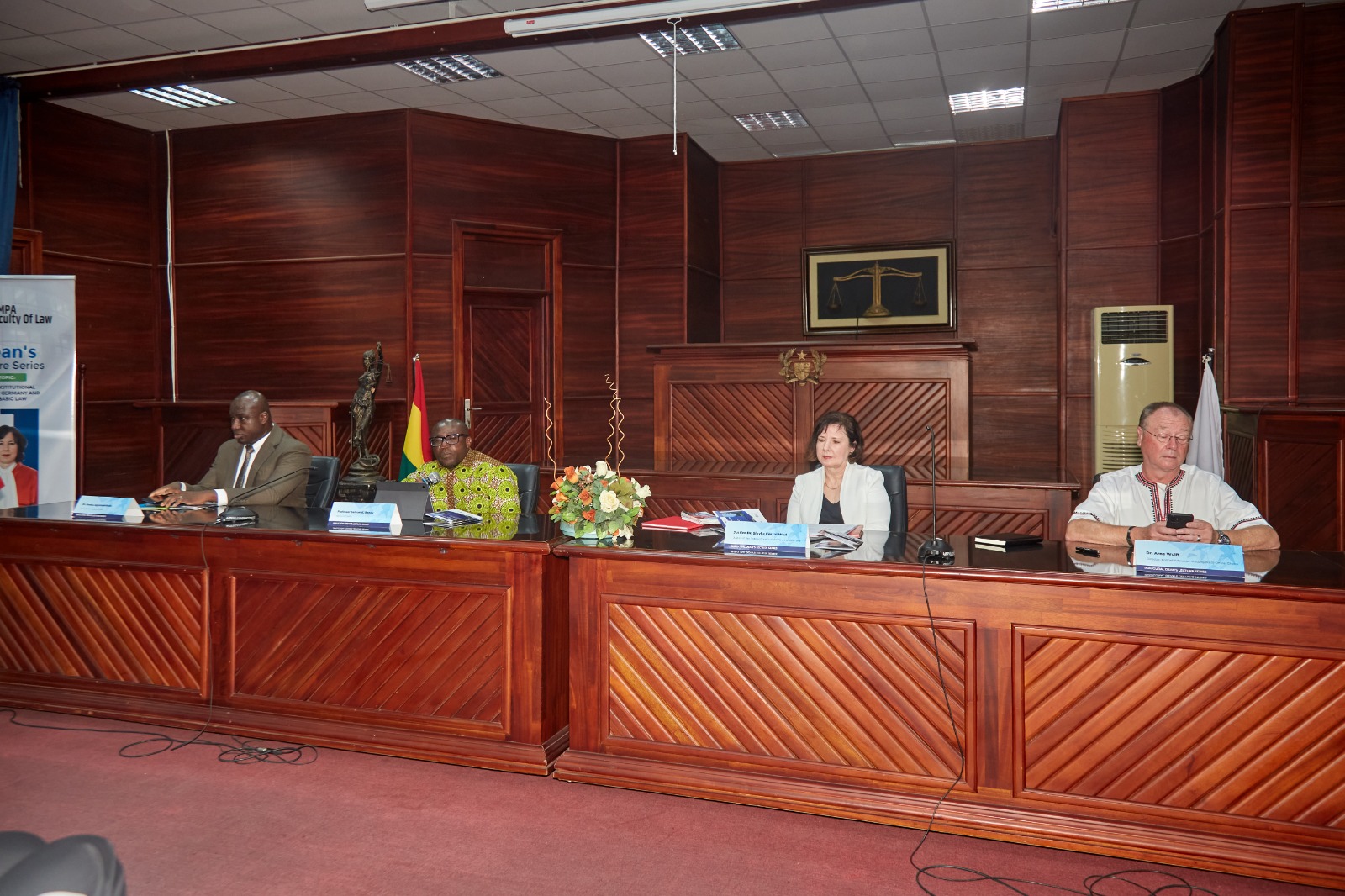
“In rare cases, the Plenary itself decides a case; this is required if one Senate intends to deviate from the other Senate’s interpretation of a specific legal matter. Half of the 16 Justices of the Federal Constitutional Court are elected by the Bundestag, and half by the Bundesrat.
“The President and Vice-President of the Court are also elected, in turns, by the Bundestag and the Bundesrat. A two-thirds majority is required in both electoral bodies to ensure that the composition of the Senates is well-balanced.
“At least three members of each Senate must be elected from the supreme federal courts (Federal Court of Justice, Federal Administrative Court, Federal Finance Court, Federal Labour Court and Federal Social Court) so that the Federal Constitutional Court’s decisions can benefit from their broad judicial experience” the Federal Constitutional Court of German judge added.
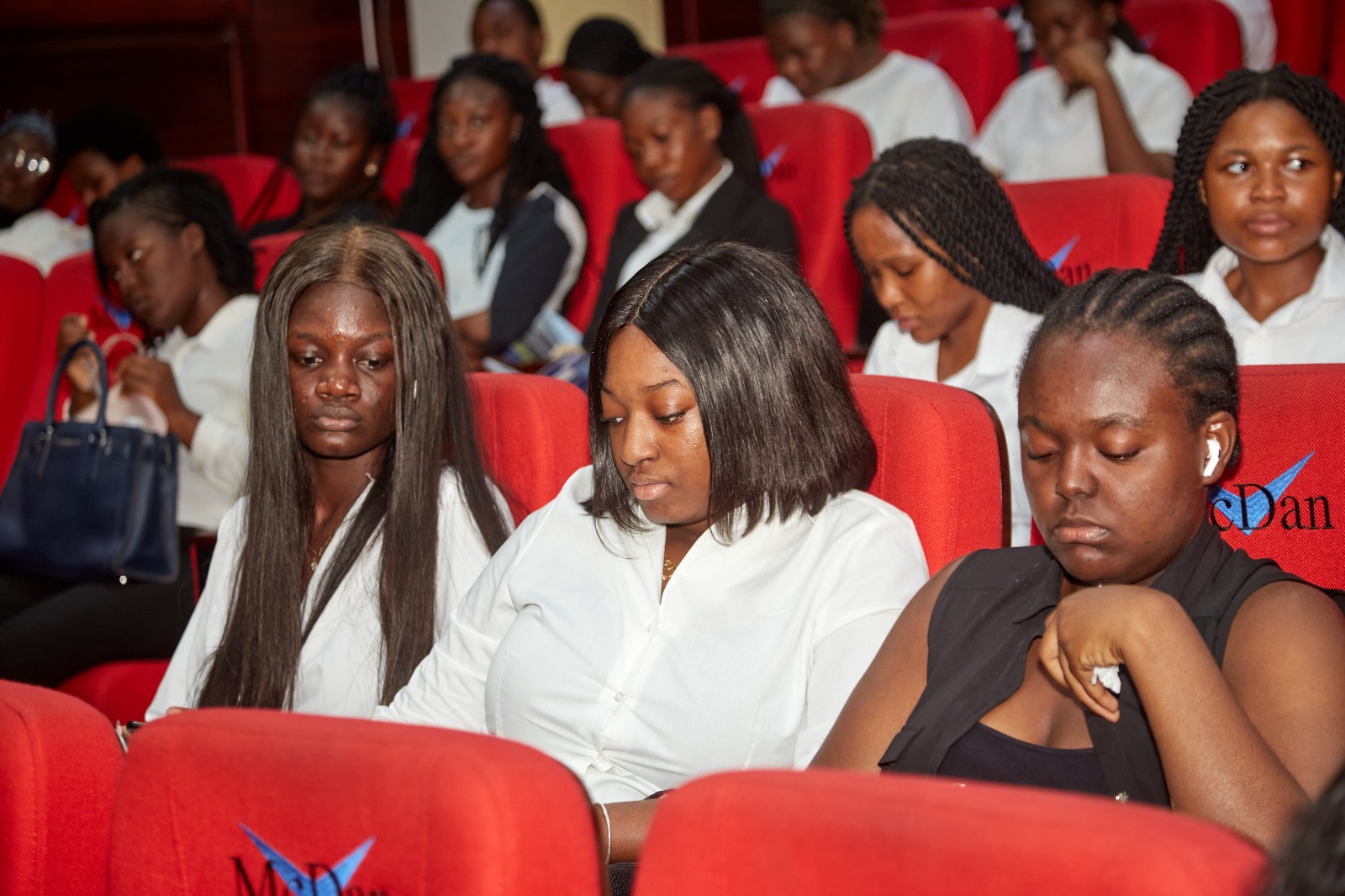
“Anyone who is at least 40 years old and qualified to hold judicial office pursuant to the German Judiciary Act may be elected. A Justice’s term of office ends after twelve years or when the retirement age of 68 is reached.
“To ensure their independence, Justices may not be re-elected. The Federal Constitutional Court is responsible for ensuring adherence to the Basic Law. Since its establishment in 1951, the Court has helped ensure respect for and give effect to Germany’s free democratic basic order.
“This applies in particular to the enforcement of fundamental rights. All bodies exercising public authority are obliged to observe the Basic Law. In the event of disputes regarding the Basic Law, proceedings may be brought before the Federal Constitutional Court. Its decisions are final and binding on all other state organs” Justice Kessal-Wulf further stated concerning the Constitutional Court of Germany.
Dr Sibylle Kessal-Wulf commended GIMPA and especially Dr Kwaku Agyeman-Budu for the initiative.
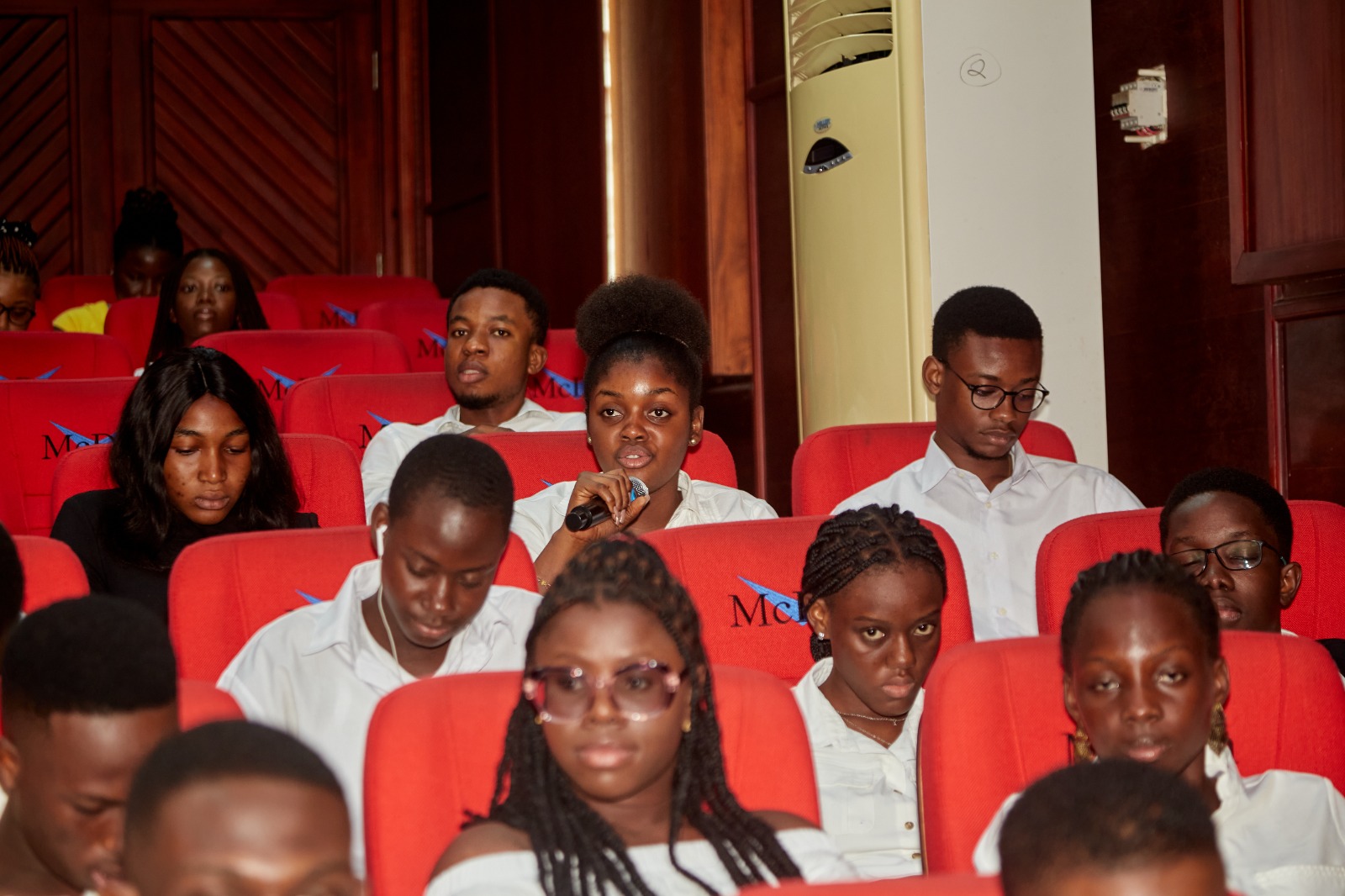
GIMPA Faculty of Law
The GIMPA Faculty of Law is one of the ideal faculties in Ghana for the pursuit of legal scholarship and training of would-be lawyers, legal academics and policymakers.
Since its establishment in 2010, GIMPA Law has quickly emerged as a preeminent centre of learning, emerging among the Ghanaian Law Faculties as the Faculty of choice.
The faculty’s rigorous standards and tested pedagogies prepare its students for an increasingly competitive legal educational environment and a complex legal marketplace.
The carefully crafted atmosphere within the school presents a congenial environment for students to fully achieve their potential and advance nascent talents in the law.
With its deep-rooted belief in the efficacy of practical lawyering, GIMPA Law provides clinical legal education, including student participation in law clinics, moot courts and practical courses of study from the first year of enrolment through to graduation.
SOURCE: DAILY MAIL GH

